Focusing on Educational Challenges Ahead
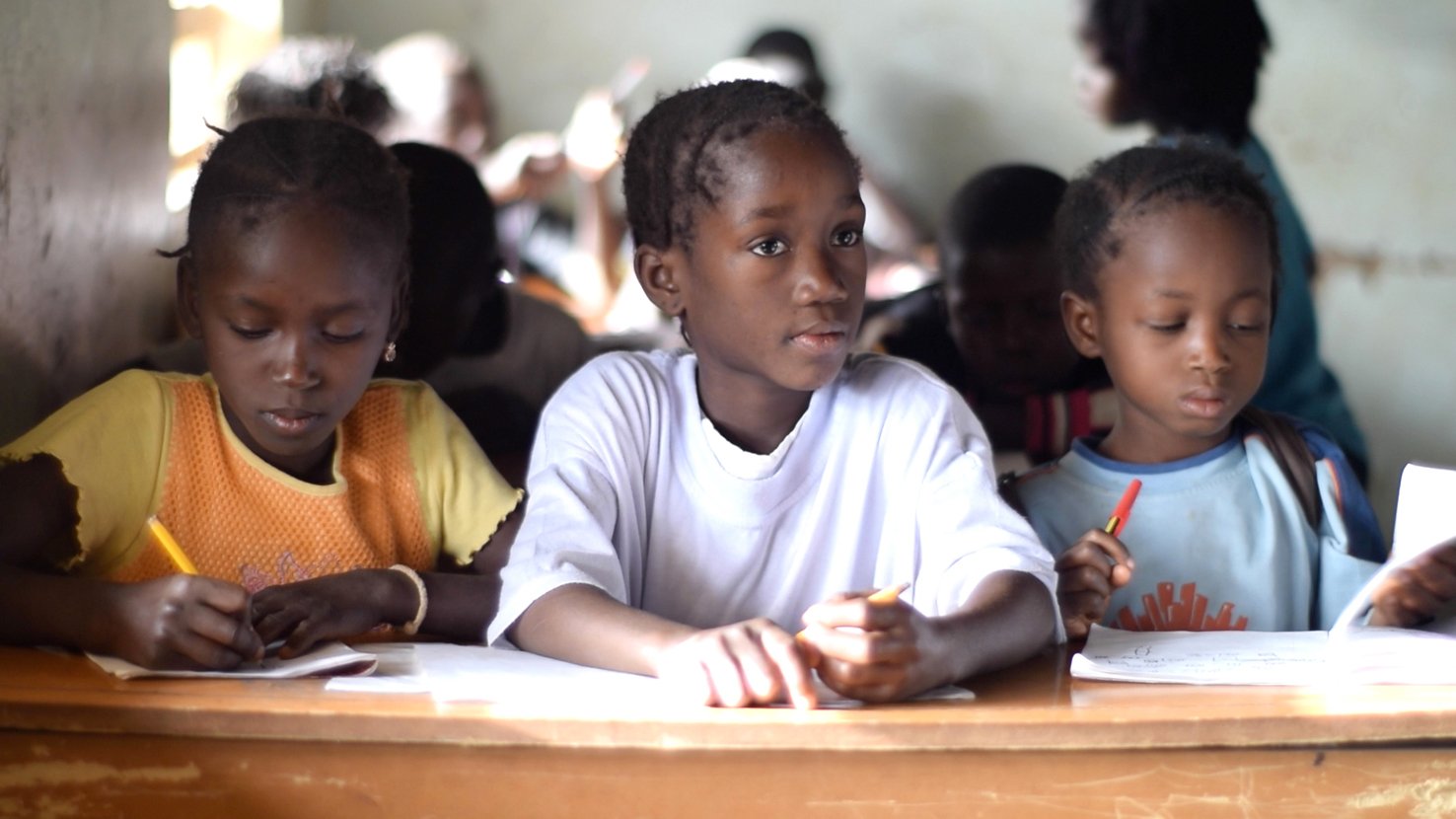 Education is key to advancing human development; it empowers people to determine their own destiny. However, in many parts of the world obstacles exist that prevent children, especially girls, from attending school.
Education is key to advancing human development; it empowers people to determine their own destiny. However, in many parts of the world obstacles exist that prevent children, especially girls, from attending school.
Overcoming barriers to education and making education a reality for the world's poor has been a crucial part of the international development agenda. For example, in 2000, the global community made access to primary education for all girls and boys a key element of the UN Millennium Development Goals. Because of efforts of many government and non-governmental actors in pursuit of this objective, the percentage of children enrolled in primary school rose from 83% in 2000 to 91% in 2015.
The Next 15 Years
This progress is notable, but there is still more work to do. An estimated 57 million children are still denied a primary education, and globally only 43 percent of young people complete upper secondary education. The obstacles to further progress go beyond the need for more teachers and textbooks and involve the most basic of resources. For example, three out of ten primary schools worldwide still lack an adequate water supply.
The commitment to advancing educational opportunities for all was renewed in 2015 with the adoption of the UN Sustainable Development Goals (SDGs). The SDGs include an array of targets for the next 15 years that will make inclusive and lifelong learning possible for all persons. But how will this be achieved and what exactly is involved?
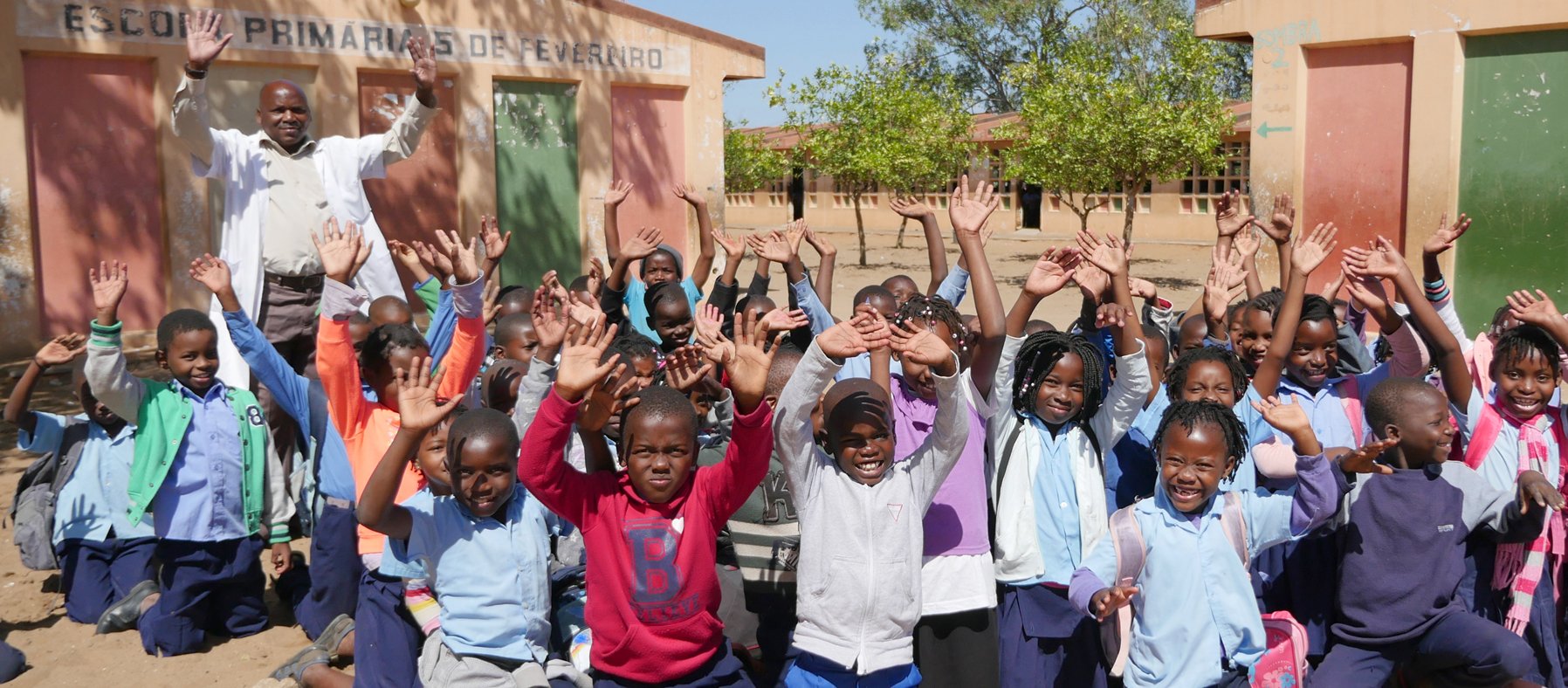
Education for People and Planet
A new report, Education for People and Planet: Creating Sustainable Futures for All, examines the SDG educational targets and the associated indicators in detail, indicates where gaps in progress exist, and considers how education interacts with the overall sustainable development agenda reflected by the other SDGs.
Published by the the UN's Educational, Scholastic, and Cultural Organization (UNESCO), the report is the first in an annual series of "Global Education Monitoring Reports" (GEM) that will track progress toward meeting the educational targets.
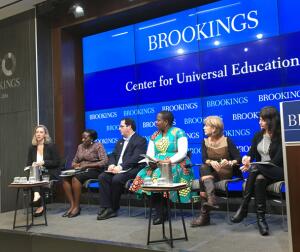 The new UNESCO report was the topic of discussion at a recent Brookings Institute panel. Among the panelists was Aaron Benavot, Director of the Global Educational Monitoring Report. Mr. Benavot discussed key aspects of this far-reaching report, including the likelihood that the central educational target of "universal primary and secondary education" would be achieved by 2030. This target aims to have every child be able to complete 12 years of education.
The new UNESCO report was the topic of discussion at a recent Brookings Institute panel. Among the panelists was Aaron Benavot, Director of the Global Educational Monitoring Report. Mr. Benavot discussed key aspects of this far-reaching report, including the likelihood that the central educational target of "universal primary and secondary education" would be achieved by 2030. This target aims to have every child be able to complete 12 years of education.
Benavot explained that, using the best data available, his team determined that, unless more resources are made available, the universal education target would be met 54 years too late (by 2084)! In Sub-Saharan Africa, the achievement date is even more elusive: "Information indicates that [Sub-Saharan Africa] would not achieve universal primary and secondary education until somewhere in the 22nd century," said Benavot.
Assessing Education Quality
Another issue addressed by the report is the quality of education received by students. Quality is often assessed by focusing on learning outcomes only (e.g., reading and writing gains demonstrated by students).
Benavot indicated that his team recognized that other factors must also be taken into account. "We argue that the focus on quality education shouldn't be narrowly defined in terms of learning outcomes but that we need to look at policies, curricula, teacher training, and many other aspects, including learning outcomes, in order to get a much more holistic and comprehensive view of a quality education."
Read the appraisal of the Planet Aid-supported teacher training program in Malawi in the 2014 Education for All Global Monitoring Report.
The myriad challenges of attempting to assess teaching quality on a global scale was underscored in the GEM Report. For example, the subjective nature of classroom observations and the need for a sensitive and nuanced evaluation approach was underscored: "Observers must use their own judgement about what happens in the classroom and code teacher practices and student behavior with more nuance."
The writers of the report further emphasize that cultural and other systems factors must be taken into account in assessing quality:. "Classroom behavior depends on system level factors, such as government education policies, and differences in the home, such as household living conditions. In addition, classroom practices vary according to cultural beliefs and expectations."
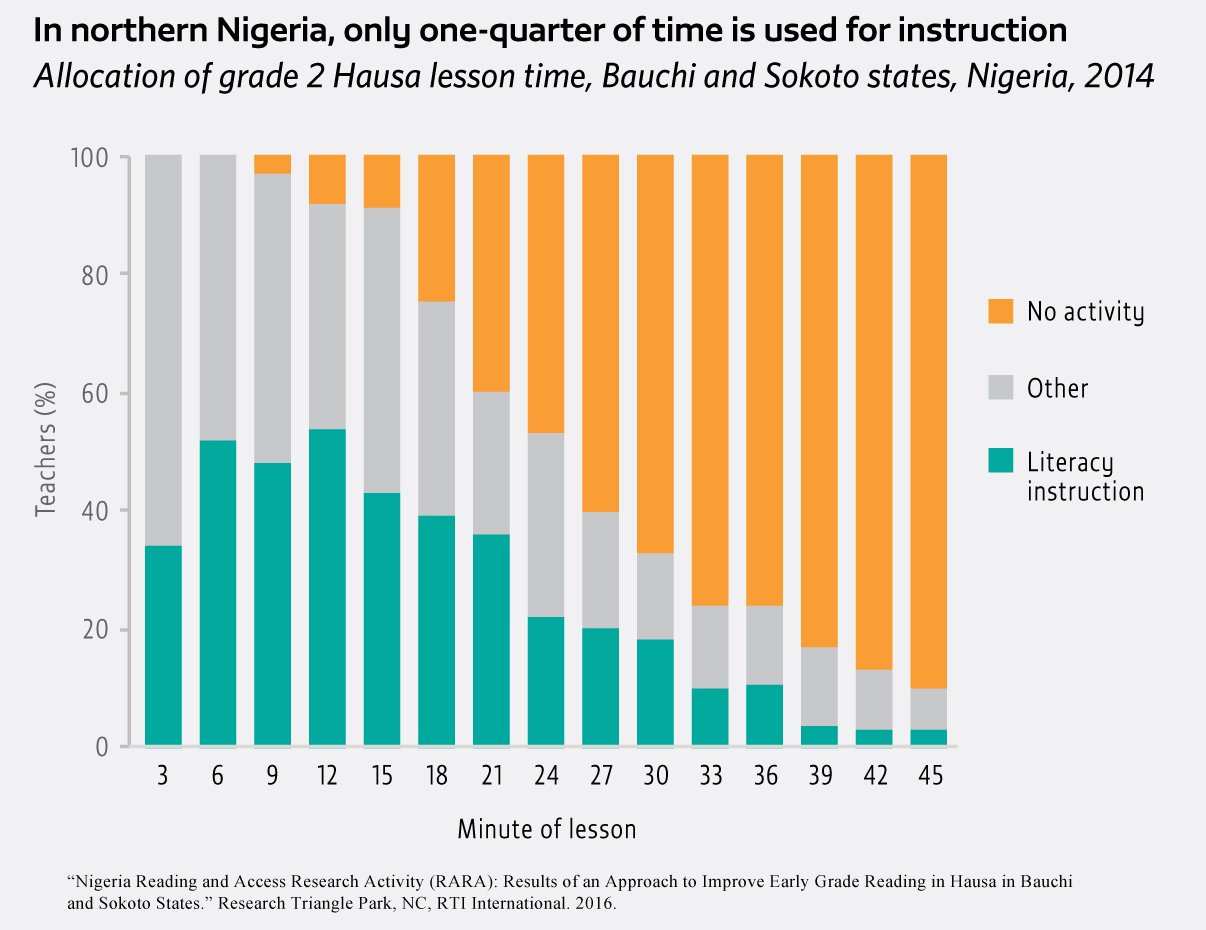
Notwithstanding these issues, there are clearly factors such as teacher attendance and time spent on lessons that can be compared. The GEM Report highlighted previous research that showed teacher absenteeism to be a large issue. Some countries' teachers were absent 40% and 50% of lesson time during the school year (in Mozambique time lost to absenteeism was 55%). Taking time lost during lessons into account (even with teachers present), the average child experienced just 1 hour and 40 minutes of actual daily teaching time per day!
Gender Equality
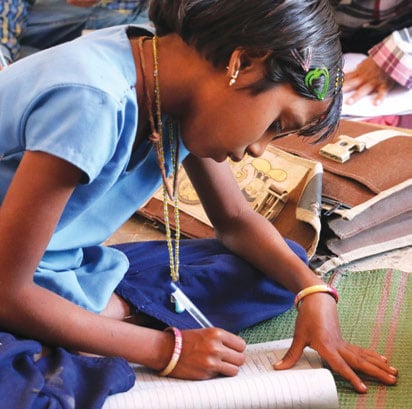 Crucial to achieving greater educational opportunities is addressing the challenge of inequalities and disadvantages uniquely faced by girls and women. Approximately 479 million women across the globe cannot read a single sentence, and nearly 57 million girls remain out of school and will likely never enroll.
Crucial to achieving greater educational opportunities is addressing the challenge of inequalities and disadvantages uniquely faced by girls and women. Approximately 479 million women across the globe cannot read a single sentence, and nearly 57 million girls remain out of school and will likely never enroll.
"Women are often absent from or peripheral to decision making in most cultures, social organizations and global institutions, in families, and in major religions," said Benavot. He added that gender equality in education is a fundamental issue and must be addressed if development progress is to occur. "Gender equality is a matter of social justice and human rights," he said. "It drives development progress. It's vital for achieving peaceful, inclusive, resilient, and just societies."
Supporting Teacher Training
Planet Aid applauds the work of UNESCO and the Global Education Monitoring Work in helping the global community move toward education for all. Our support of teacher training colleges in Africa and India is improving the supply of quality trained teachers. Read more about the programs we support on our teacher training page, and learn about our comprehensive educational initiative in Mozambique called Food for Knowledge.
